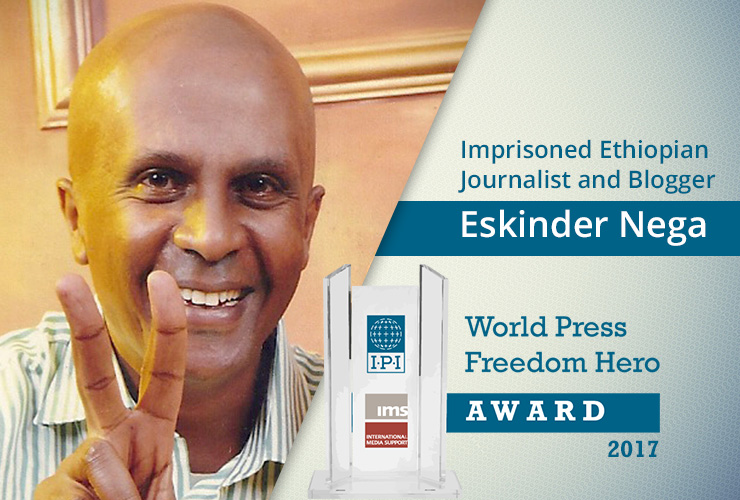The International Press Institute (IPI) today called for the immediate and unconditional release of Ethiopian journalist Eskinder Nega, whose presidential pardon remains in doubt after he refused to sign a forced confession.
Nega, the recipient of last year’s IPI-IMS World Press Freedom Hero award, was one of 746 political prisoners whose release was announced on Thursday under a presidential pardon. However, as a condition for their release, Nega and several other prisoners were asked to sign pardon letters admitting that they were members of Ginbot 7, an opposition political group that the Ethiopian government considers as a terrorist organization. Nega has refused to sign the letter, stating that he is not a member of the group.
A persistent critic of Ethiopia’s ruling party, Nega was detained in 2011 shortly after he published a column questioning the government’s abuse of anti-terror laws to punish journalistic scrutiny. An Ethiopian court convicted Nega in June 2012 on sham and vague terrorism-related charges and sentenced him to 18 years in prison, a decision the U.N. Working Group on Arbitrary Detention later said violated international law.
IPI Deputy Director Scott Griffen called the move to force Nega to sign the false confession letter “a cynical ploy by the Ethiopian authorities to justify the gross and arbitrary rights violation that has occurred in this case”.
“Eskinder Nega has wrongfully jailed for over six years as punishment for exercising his right to freedom of expression”, he said. “He must be released immediately and without conditions.”
The Ethiopian government has consistently used anti-terror legislation to retaliate against journalistic scrutiny of its actions and smear the country’s independent media. IPI members in 2017 called on Ethiopia to reform its anti-terror law in line with international standards and to repeal criminal defamation and false news provisions that have been used to target critical journalists. Members also stressed their view that Ethiopia should embrace press freedom and free expression as engines of – rather than obstacles to – national political, economic and societal development.
